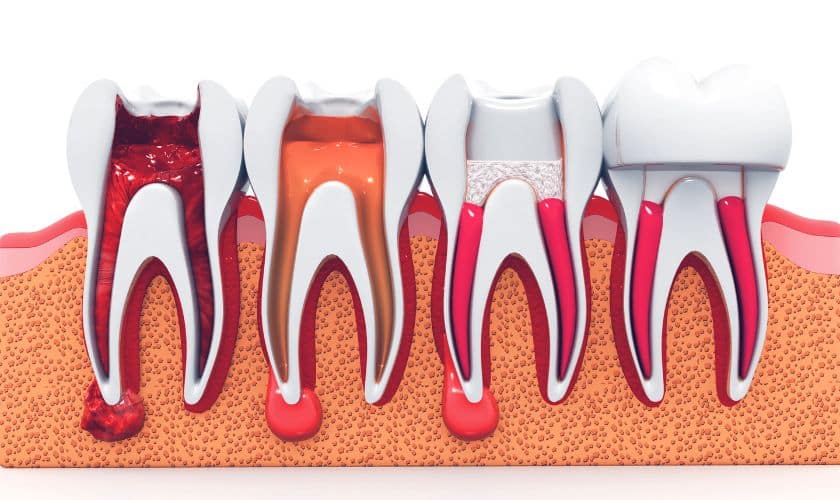Root canal therapy, often surrounded by misconceptions and fears, is a dental procedure designed to save a severely damaged or infected tooth. Understanding the signs and symptoms that suggest the need for a root canal is crucial for seeking timely intervention and preserving your oral health. In this blog, we’ll explore the common indications that may signal the necessity of a root canal procedure.
1. Persistent Tooth Pain
One of the primary signs that you might need a root canal is persistent, throbbing tooth pain. This pain can range from a dull ache to intense discomfort and may be exacerbated by chewing or applying pressure to the tooth.
2. Sensitivity to Hot or Cold
If you experience heightened sensitivity to hot or cold temperatures that lingers after the stimulus is removed, it could be indicative of nerve damage within the tooth. This sensitivity might be felt as a sharp, shooting pain.
3. Swollen Gums
Inflammation or swelling of the gums around a specific tooth can be a sign of infection. If you notice redness, tenderness, or swelling in the gum tissue, it’s essential to consult with your dentist promptly.
4. Pimple on the Gums (Dental Abscess)
The presence of a pimple-like bump on the gums, known as a dental abscess or gum boil, can signal an infection. This may be accompanied by pus drainage and a foul taste in the mouth.
5. Darkening or Discoloration of the Tooth
A tooth that has undergone changes in color, such as darkening or discoloration, may indicate damage to the pulp inside. This can result from trauma or infection and often necessitates a root canal.
6. Prolonged Pain or Discomfort After Dental Procedures
If you’ve undergone dental work such as a filling or crown placement, and you experience prolonged pain or discomfort, it could suggest that the tooth’s pulp is irritated or infected, requiring further intervention.
7. Tenderness or Swelling in the Jaw
Tenderness or swelling in the jaw near the affected tooth may be a sign of an underlying issue, such as an infection spreading to the surrounding tissues.
8. Bad Breath
Persistent bad breath that doesn’t improve with oral hygiene practices may be a symptom of an underlying dental infection requiring root canal treatment.
9. Painful, Prolonged Toothache at Night
Toothaches that intensify at night, disturbing your sleep, may indicate an issue requiring root canal therapy. Changes in position when lying down can increase blood flow to the affected tooth, intensifying the pain.
10. Visible Pulp Exposure
In cases of severe tooth decay or trauma, if the dental pulp becomes exposed, it can lead to intense pain and a need for urgent intervention through root canal therapy.
Conclusion
Recognizing these signs and symptoms is crucial for seeking prompt dental care. If you experience any of these indicators, it’s vital to schedule an appointment with your dentist. Early diagnosis and intervention through a root canal can often save a tooth and alleviate pain, preventing the need for extraction. Regular dental check-ups play a crucial role in identifying potential issues before they escalate, underscoring the importance of proactive oral care for maintaining a healthy, pain-free smile.


